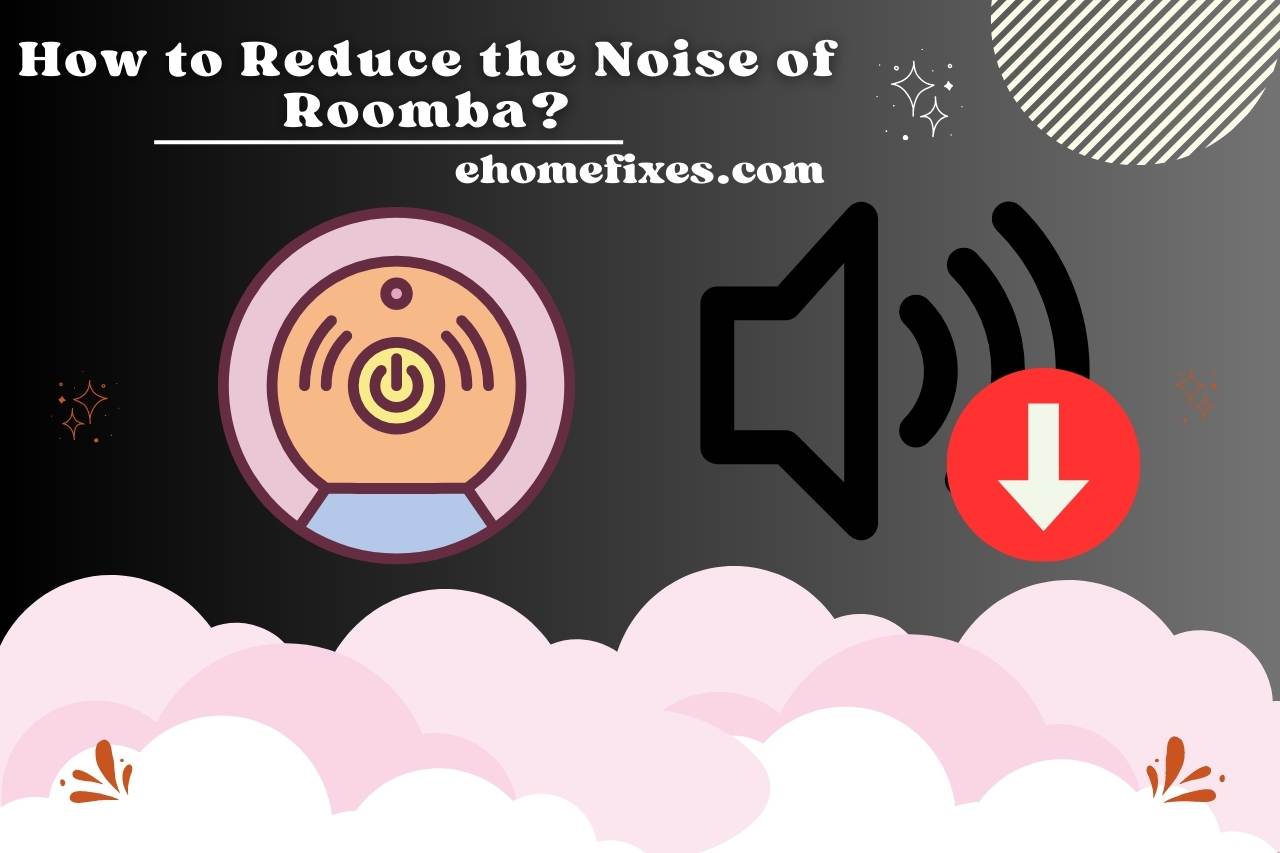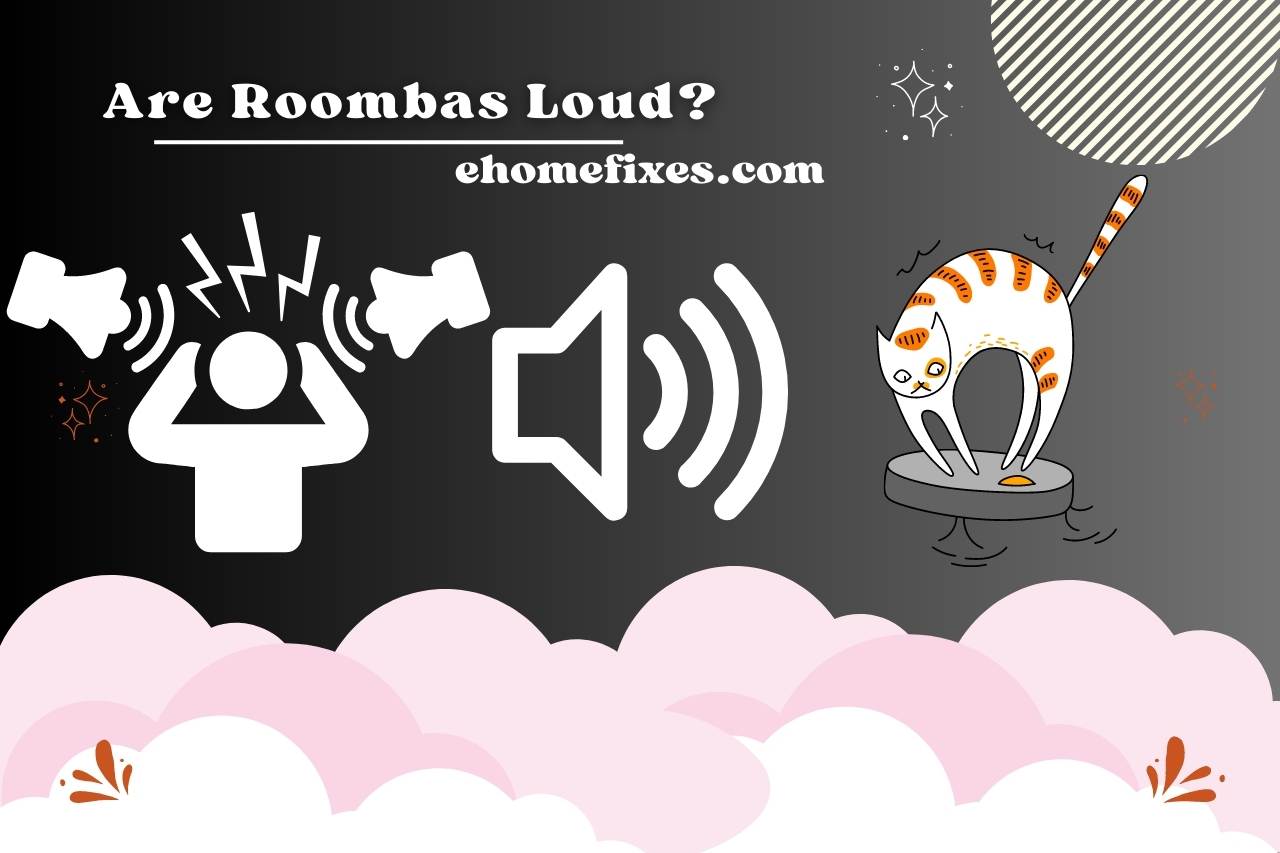Are Roombas Loud? Understanding Roomba’s Noise Levels!
If it is your first time powering Roomba to clean the floors, the unexpected loud noise should have startled you. Thus, most first-time users ask a common question: Are Roombas loud? If you are here to find answers, the good news is you are at the right place.
Roombas are popular robotic vacuums in smart homes because they have made cleaning so much more convenient and effortless to use in this fast-moving era. However, Roombas are not designed to be silent vacuum cleaners; they are quite loud when moving around the floors.
Hence they could be better used in quiet or silent spaces. Roomba noise levels are measured by decibels, and they differ with each Roomba model. Hence, you can expect the noise to get louder in the larger Roomba series because they have larger suction motors.
However, the noise levels of Roomba vary between 60 to 70 decibels, less than regular vacuum cleaners and are equal to the average human voice or washing machines. But anything louder than 70 decibels in your Roombas will concern you.
Are Roombas Loud?
As stated, Roombas are generally loud vacuum cleaners with a maximum of 70 decibels, equal to a regular washing machine. However, Roombas’ noise levels differ depending on various factors, including the size and the floors they clean.
The noise is less when Roombas move to clean around carpets, but they usually get loud on hard surfaces like wood or tiles. Thus, if your Roombas get louder than usual, the floors should influence the noise.
However, if Roombas continuously sound louder than 70 decibels, it could be a sign of defect. Thus, it is better to examine the issue before it gets worse.
Are Roombas Suitable for a Quiet Environment?
Roombas are different from a typical smart home device you would want to use if you want a quiet environment because anything more than 60 decibels is considered loud.
If you are to use a Roomba in a library, meeting rooms or even when your baby is sleeping, Roombas can easily distract the environment.
Hence, if you are considering using Roombas in a quiet environment, the answer is No because they are not the typical smart device you will want.
How Many Decibel is a Roomba?
Most Roomba device decibels vary between 60 to 70 decibels, but they can also differ depending on the size and Roomba series.
Among the different Roomba models, the Roomba S9 and S9+ are the loudest versions, with 70 decibels, while the quietest model Roomba J7 is only 55 decibels.
Roombas usually get louder when larger because they have larger suction motors, while the quietest Roombas are usually small.
Is there are Quiet Mode for Roomba?
“Quiet, clean mode” is a new feature in the latest Roomba models. The feature can be used to clean quiet spaces, excluding the distractions caused by loud noise. But, the quiet mode does not deaden the sound but makes it less noisy by adjusting the cleaning power.
What are the Factors that Affect the Sound of the Roomba?
The sound in Roombas is affected by many factors; below are each of them briefly explained and can help you determine why you are Roombas loud.
-
Age of Vacuum
The age of the vacuum also has an impact on the Roombas; you can expect older models to sound louder. Unlike new Roombas, a 10-year-old Roomba will not run smooth because they wear over time, and the internal parts start failing.
-
Floors
If your Roombas are loud, the floors impact the noise as they can get louder and quieter depending on the material they clean. Roombas are usually quiet when brushing carpets, but the decibels gradually increase when they vacuum wooden or tiled floors.
-
Error Messages
If your Roomba keeps beeping constantly, the noise is most associated with an error message. The beeping noise in Roombas is quite alarming and different from the usual sound.
Thus, when the Roomba starts beeping, it could be because their way is blocked, there are dirty sensors or bumper error when the dirt is stuck in the vacuum brush, making it difficult for the Roomba to move. However, each error depends on the number of beeps. Hence, you must first determine the number of beeps and verify the reason for the beeping noise.
-
Roomba Model
Standard Vacuums, in general, are louder, but even the loudest Roombas are quiet as standard vacuum cleaners. The primary reason for the vacuums to get louder is their motors; hence, if the Roombas get louder, the common reason is their large motor Roomba models.

How to Reduce the Noise of Roomba?
However, Roomba noises can be reduced with a few maintenance tips; hence below, we have listed a few ways to reduce the noise of Roomba.
-
Keep the Roombas Clean
One of the best ways to reduce the noise in your Roombas is to keep them clean. Roombas will get louder with a grinding noise when dirt and debris are clogged in their brushes and extractors, making it hard for them to move. Flip the Roomba and detach the brush to clean the clogs and remove the collected debris. It is essential to clean the brushes and extractors at least once a week to avoid loud grinding noises in the Roomba.
-
Ensure the Internal Components are Properly Connected
If the internal components are loose or not properly connected, examine if the brushes and extractor are in the right place in the Roomba because the components can get damaged over time. If you detach the brush or extractors in the Roomba, install them back properly, in the correct position, because they can get loose, making the Roomba loud when cleaning.
-
Maintenance
Maintenance is key if you want to reduce the noise of Roomba; it is crucial to keep the brushes clean and lubricate them when needed. Charge the Roomba vacuum robots according to a schedule, and do not leave it till the last moment for the batteries to die. Be vigilant about the beeping noises and warning messages to ensure the Roombas are safe. Following a maintenance schedule by examining the filter, sensors and extractors will reduce the loud noises in the Roomba.
Watch this one,
Video Credits – Engineerable
You May Also Like
- How to Remap Roomba? Unleash Roomba’s Potential!!!
- Why is My Roomba Squeaking? Solving the Mystery!
- Will Roomba Fall Down Stairs? Keeping Your Roomba Grounded!
- What is Error 34 on Roomba? Common Reasons & Fixes!
- What Roomba Do I Have? Unveiling Your Roomba Model!
- Can Roombas Go Over Bumps? Cleaning without Interruptions!
- Can I Move My Roomba the Home Base? Flexibility at Your Fingertips!
- Why is My Roomba Going in Circles? Resolving the Mystery!
- What Roomba Do I Have? Unveiling Your Roomba Model!







